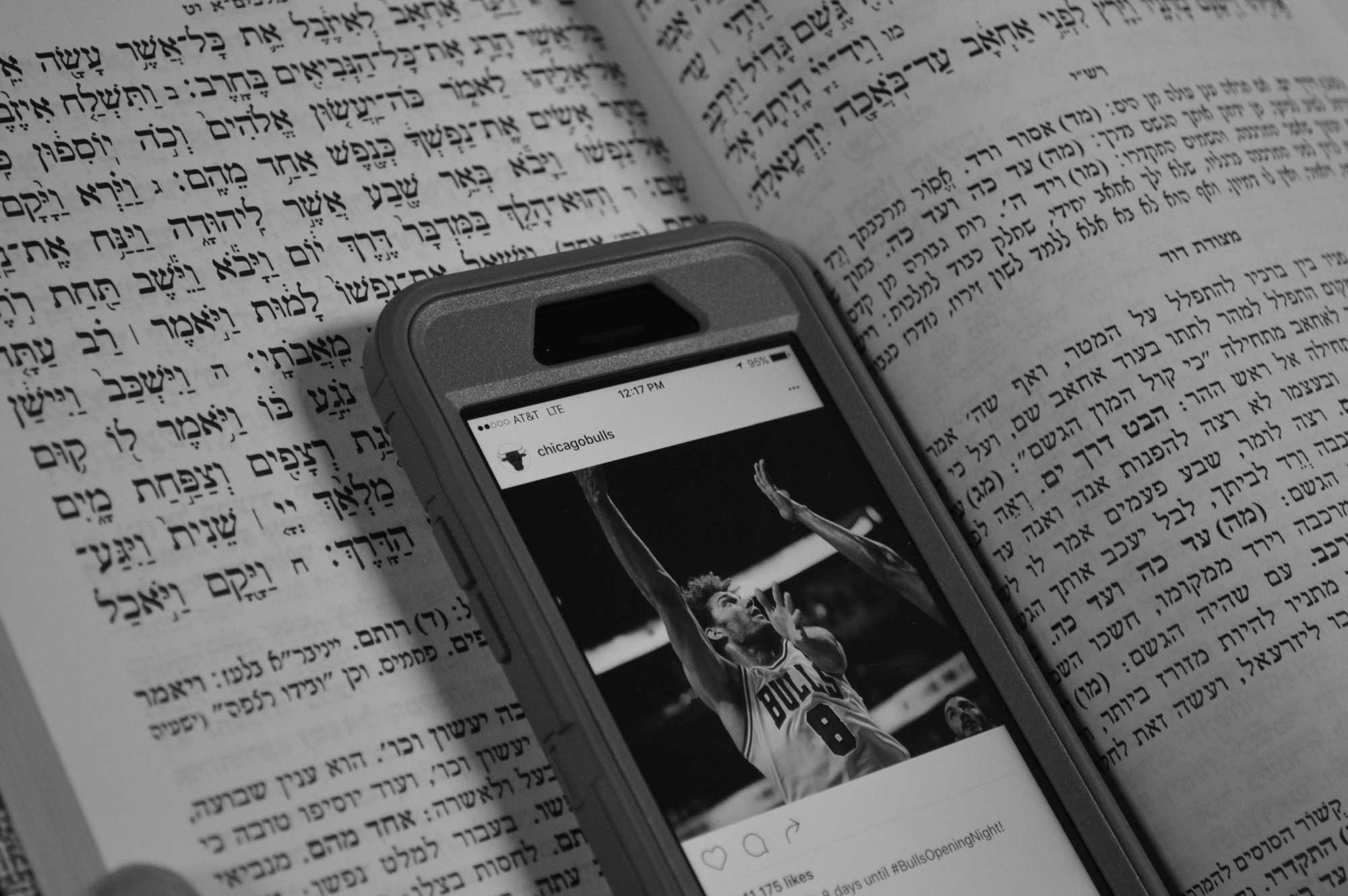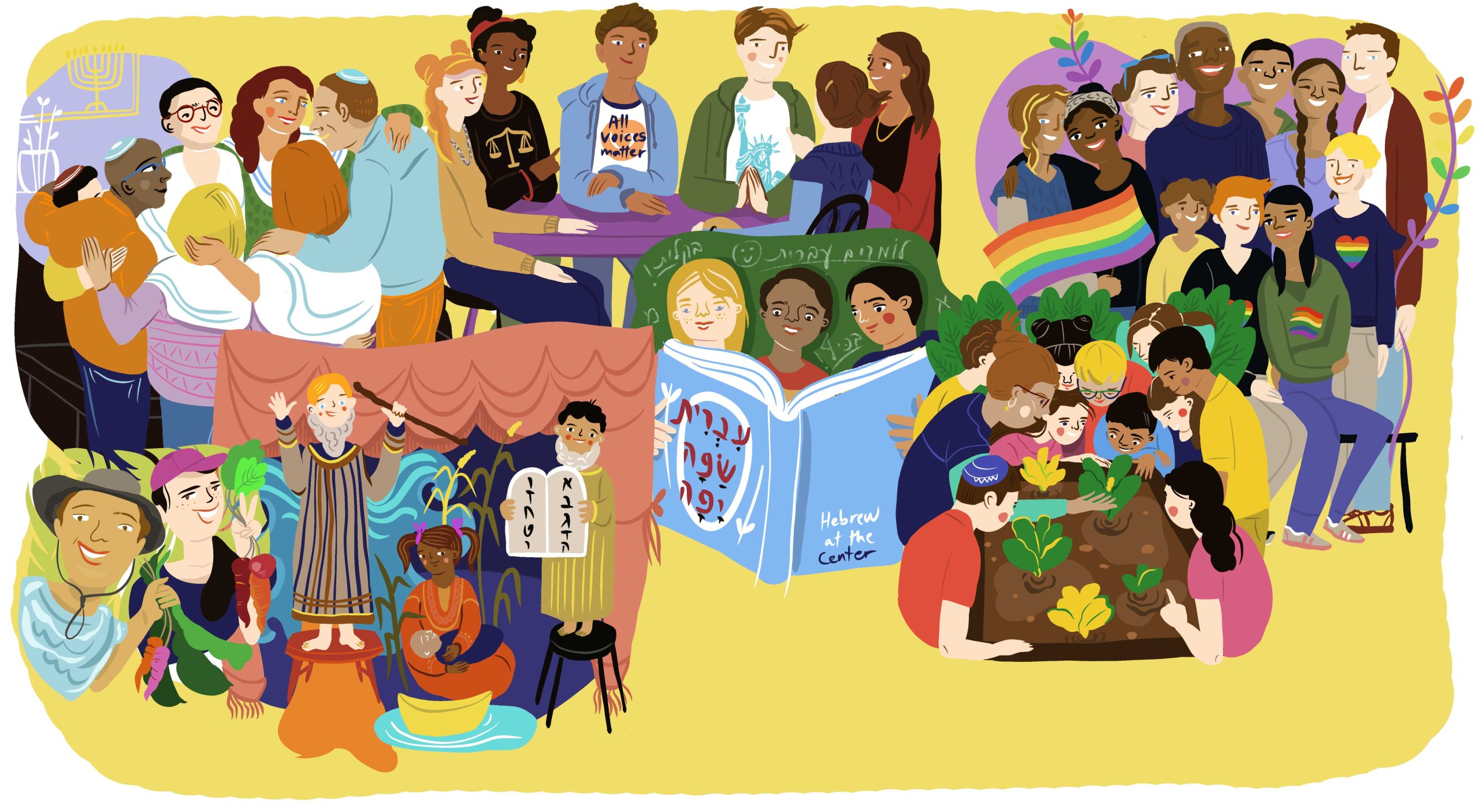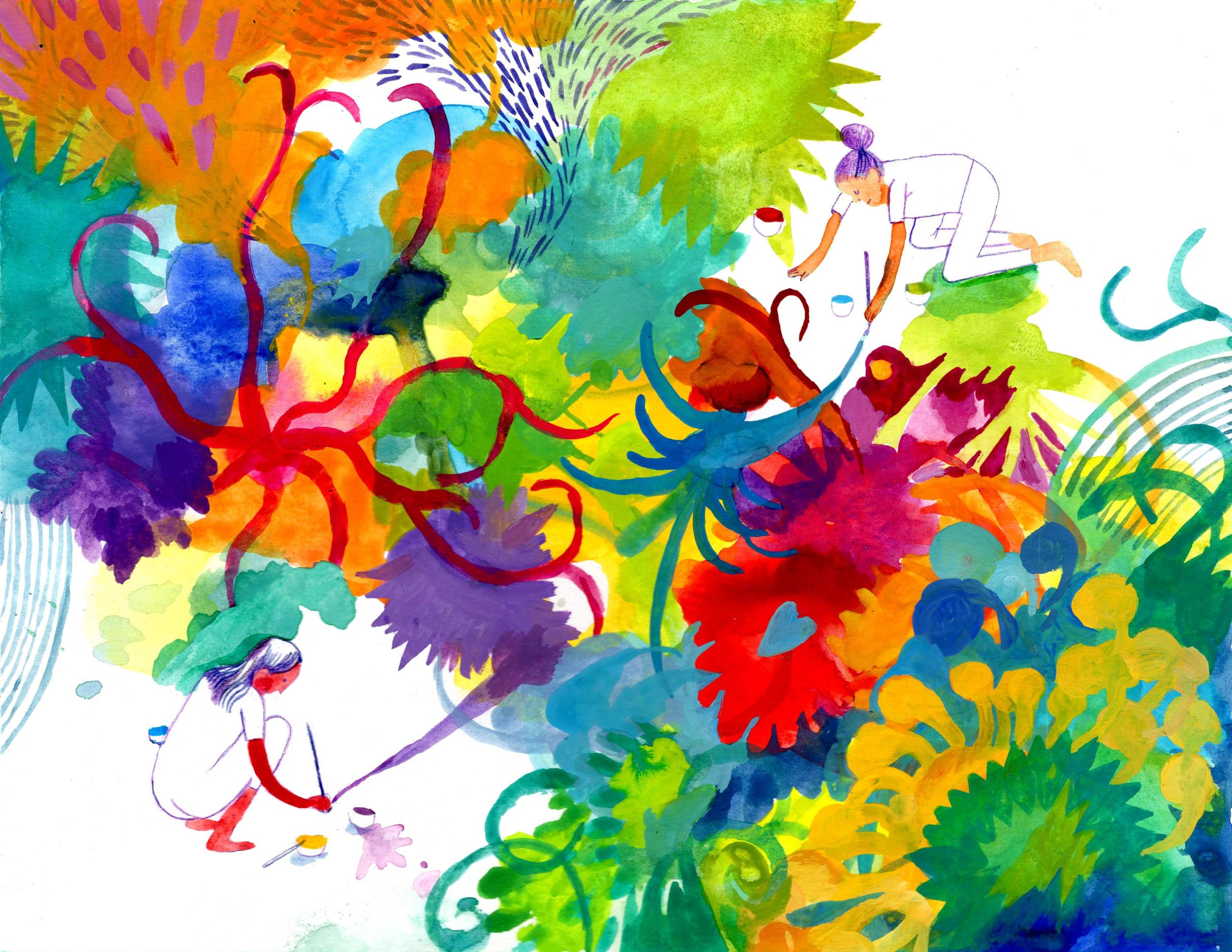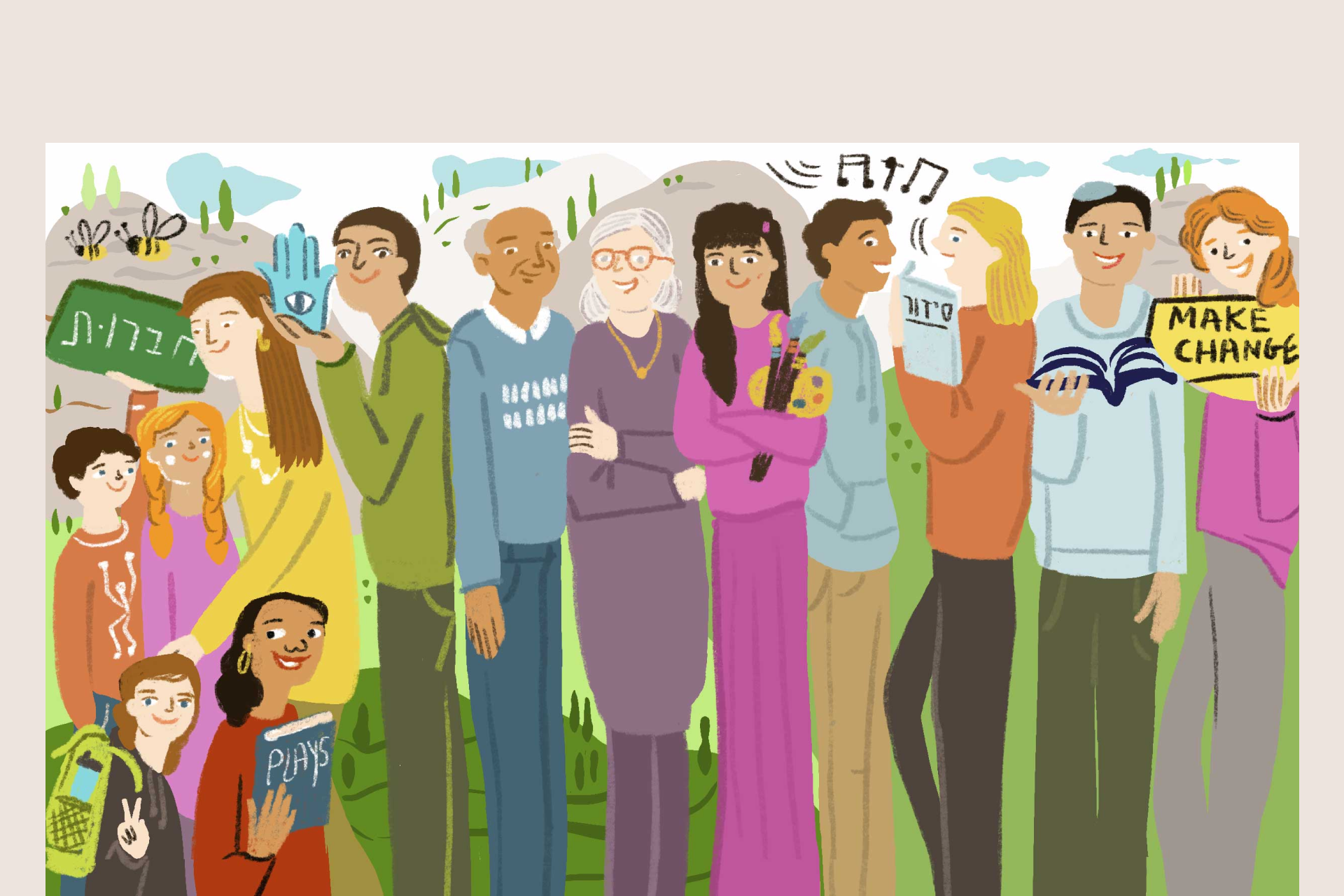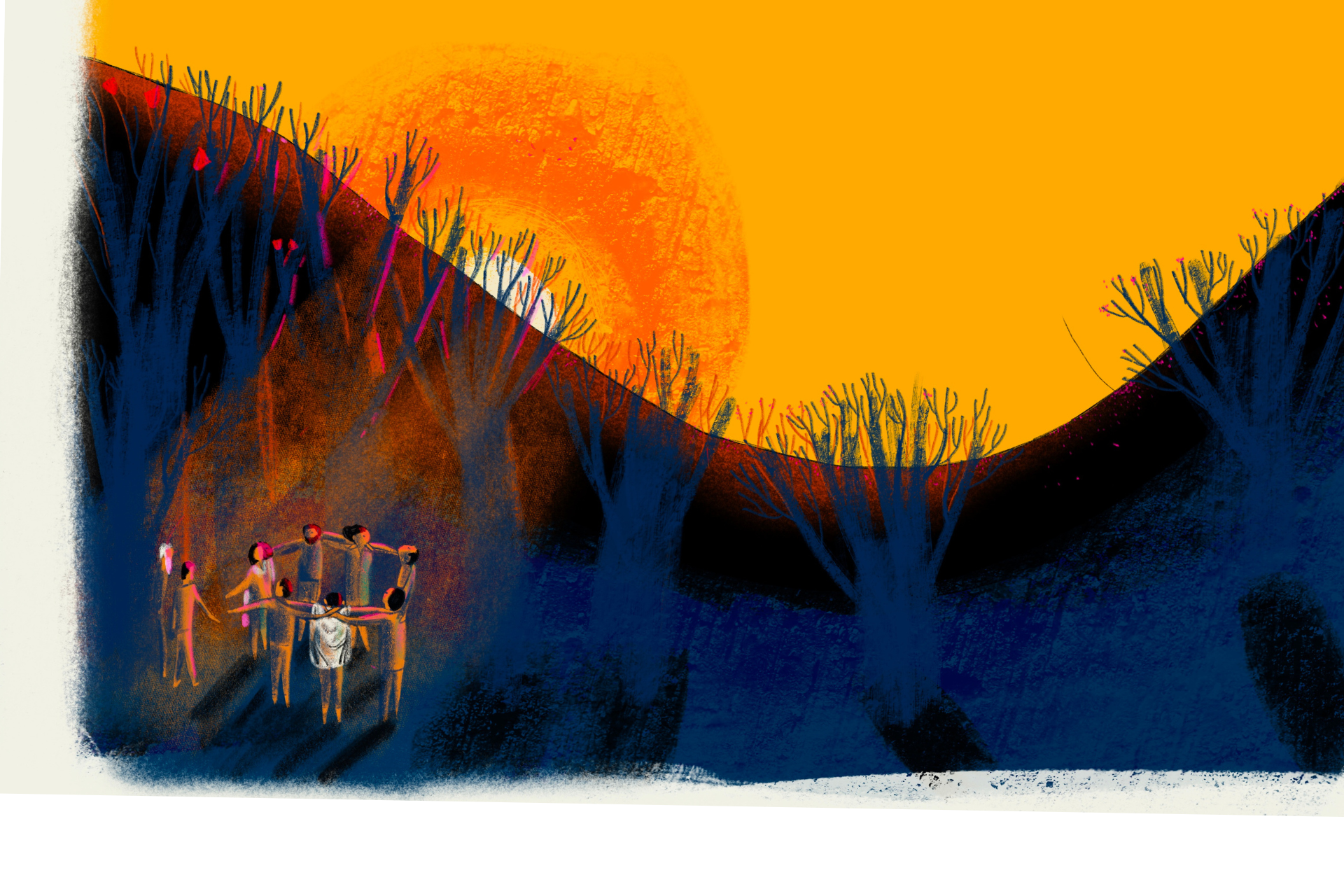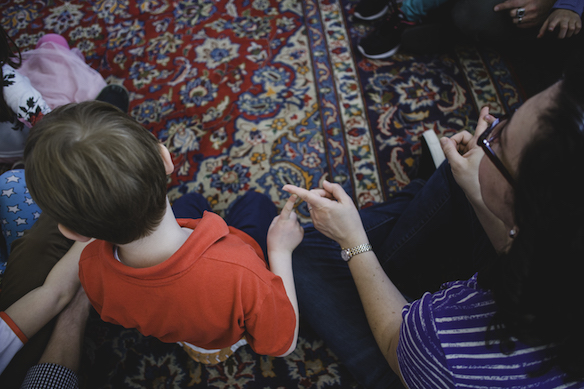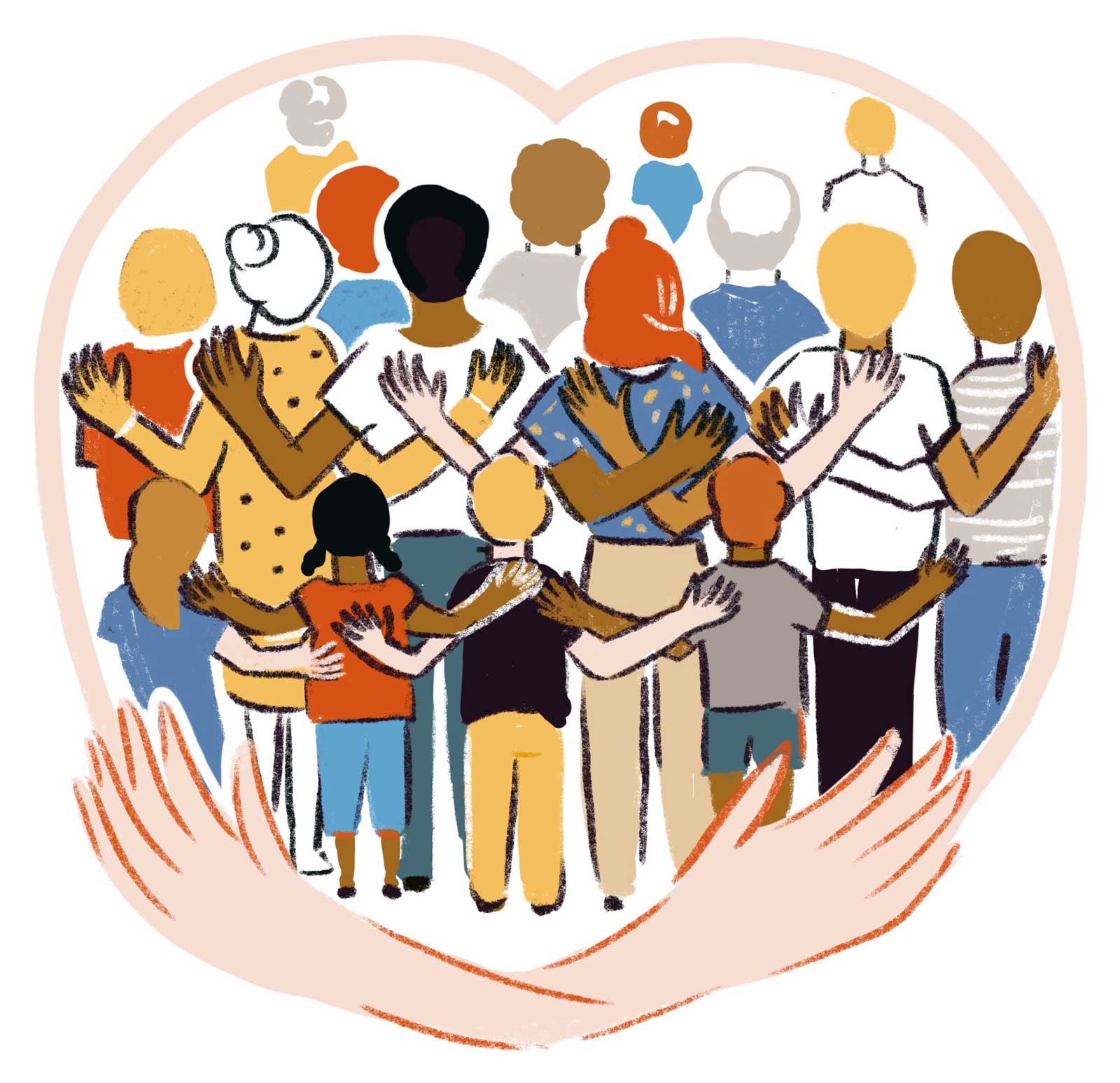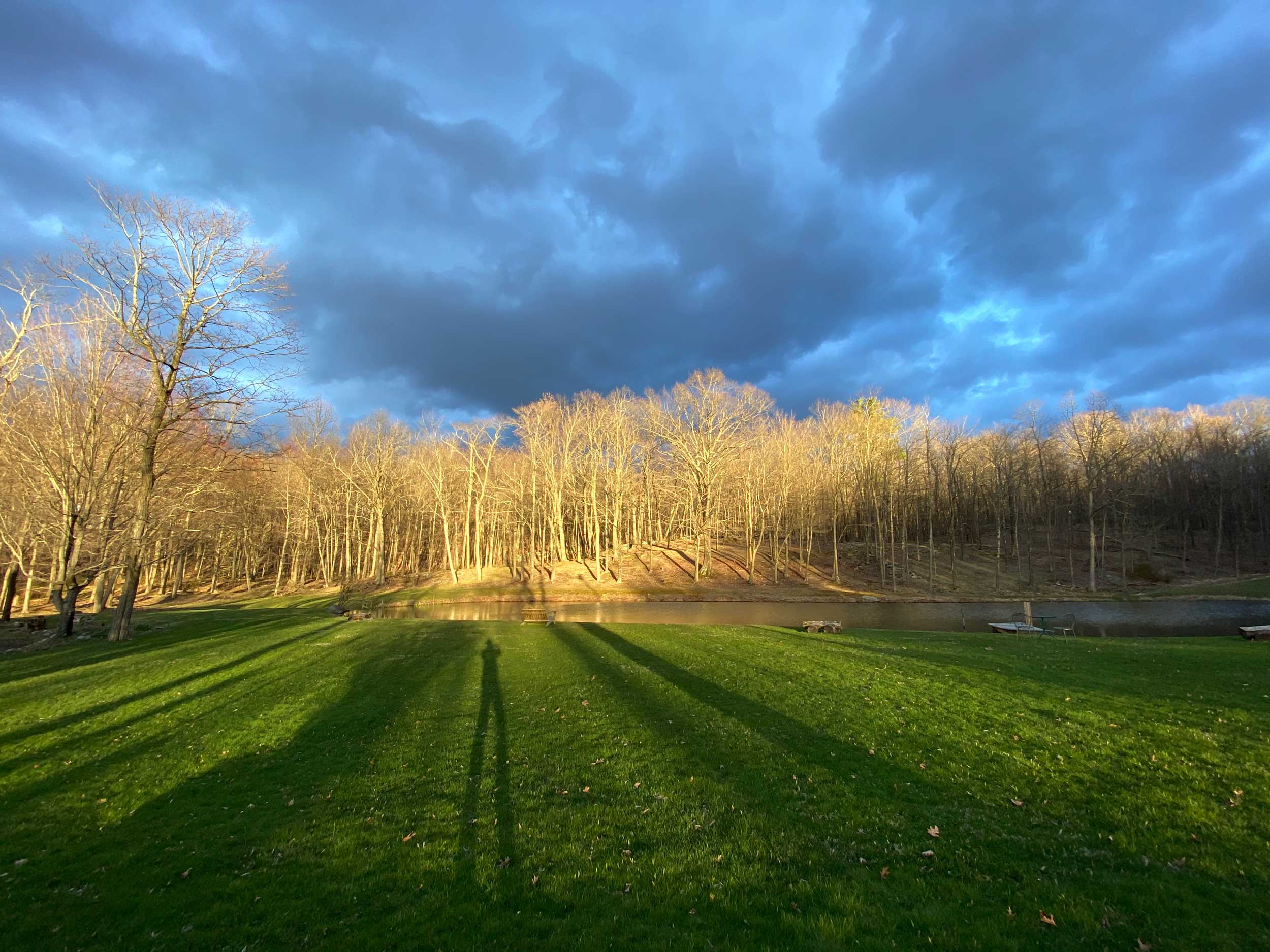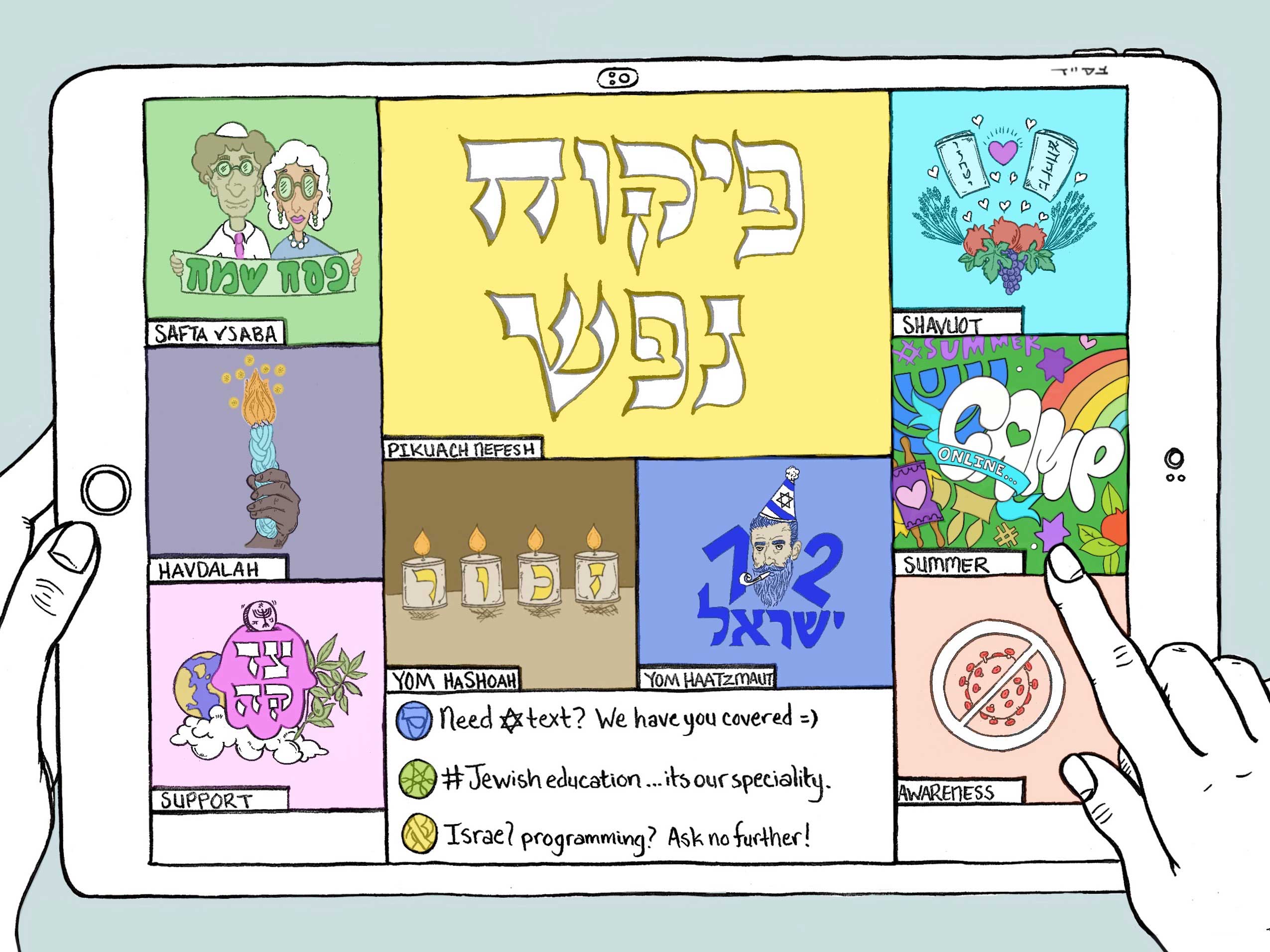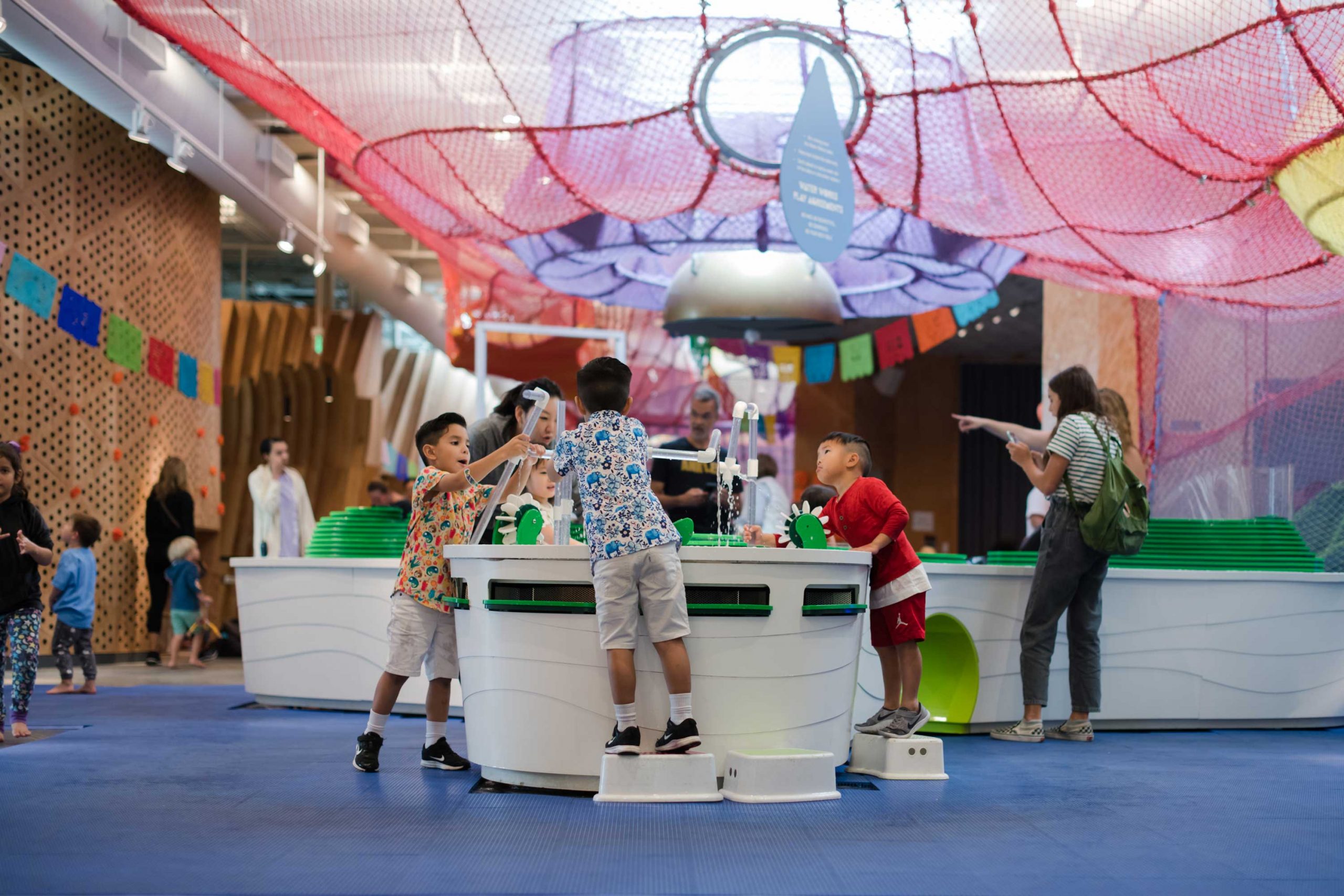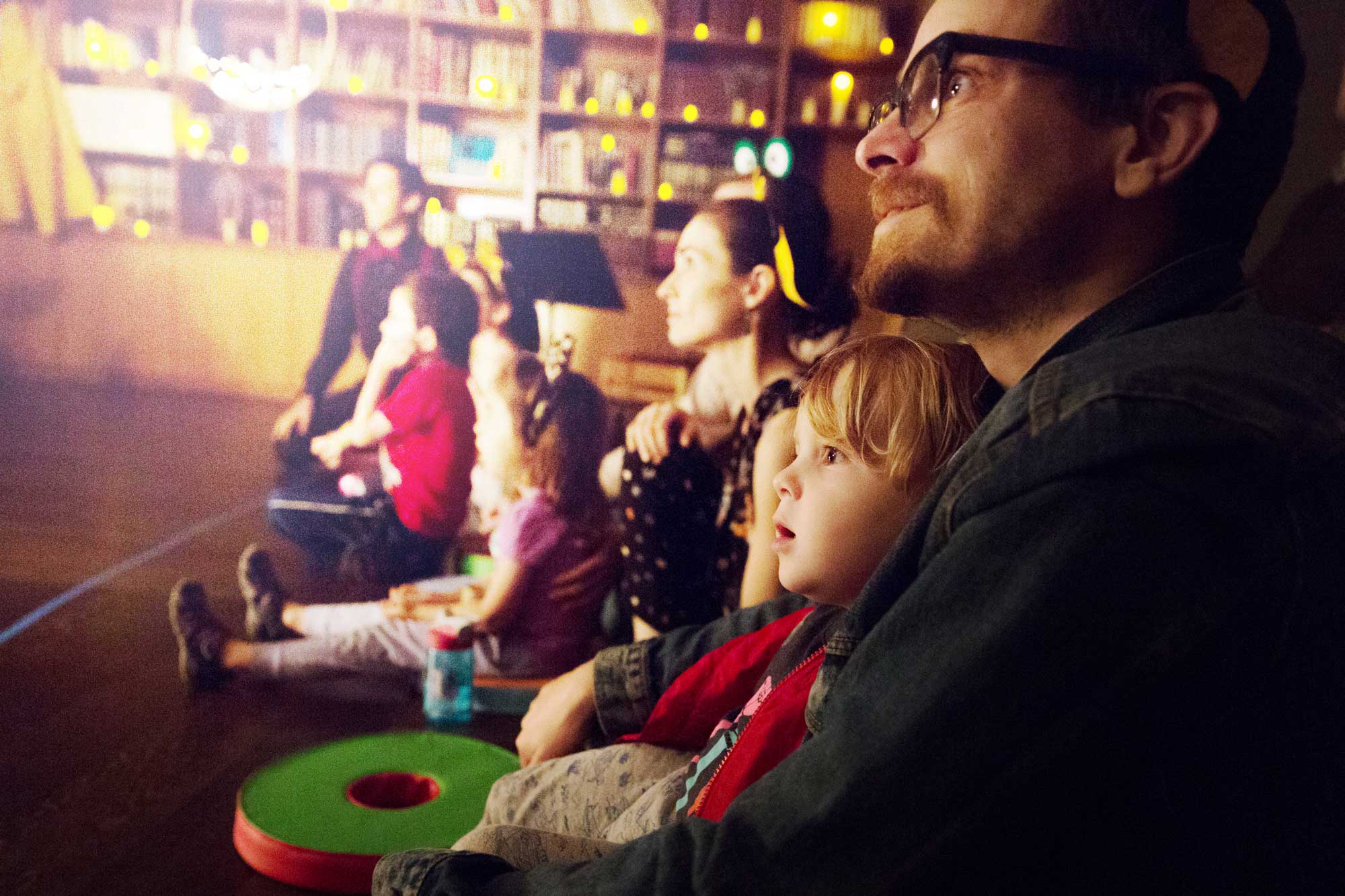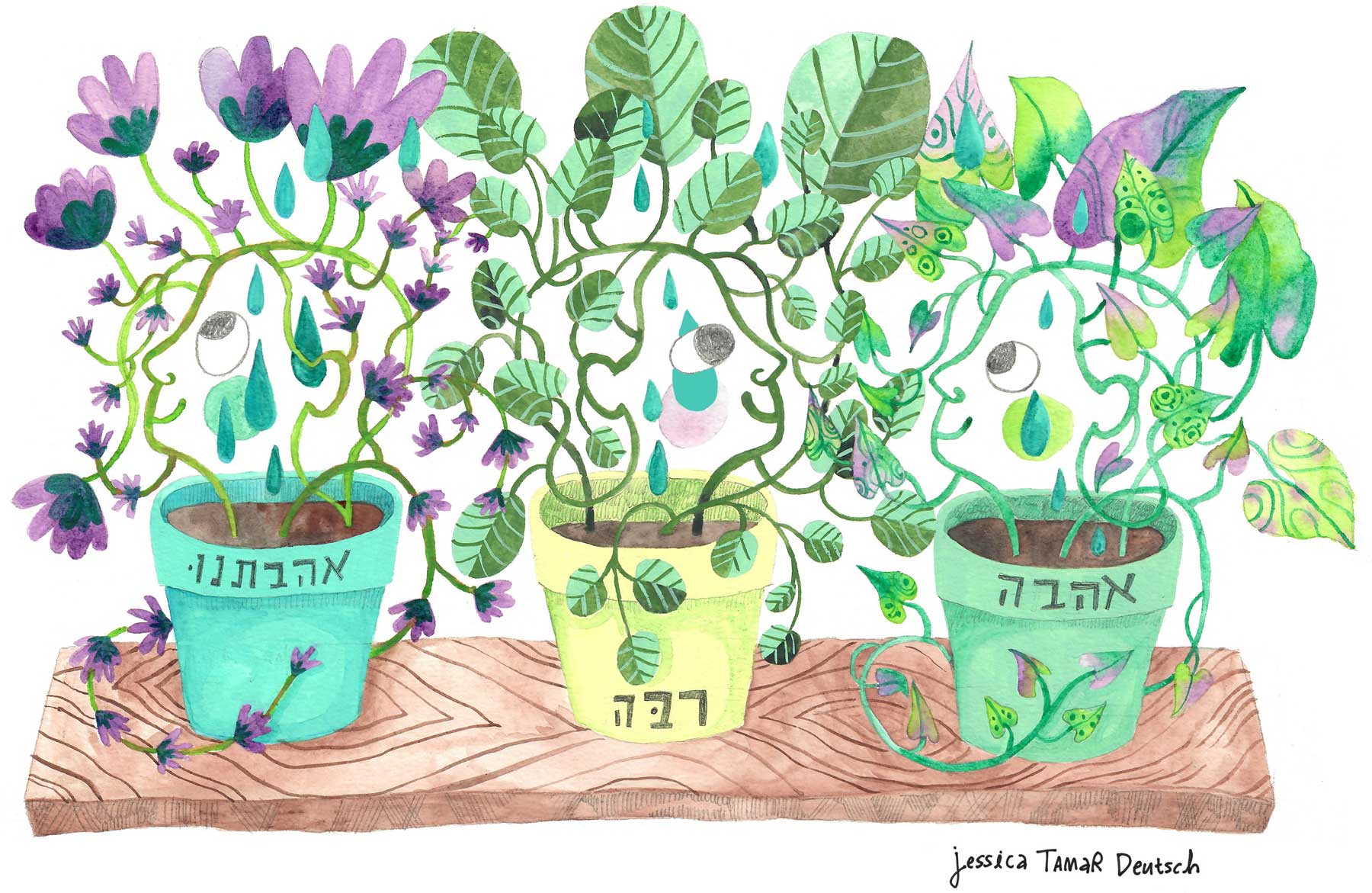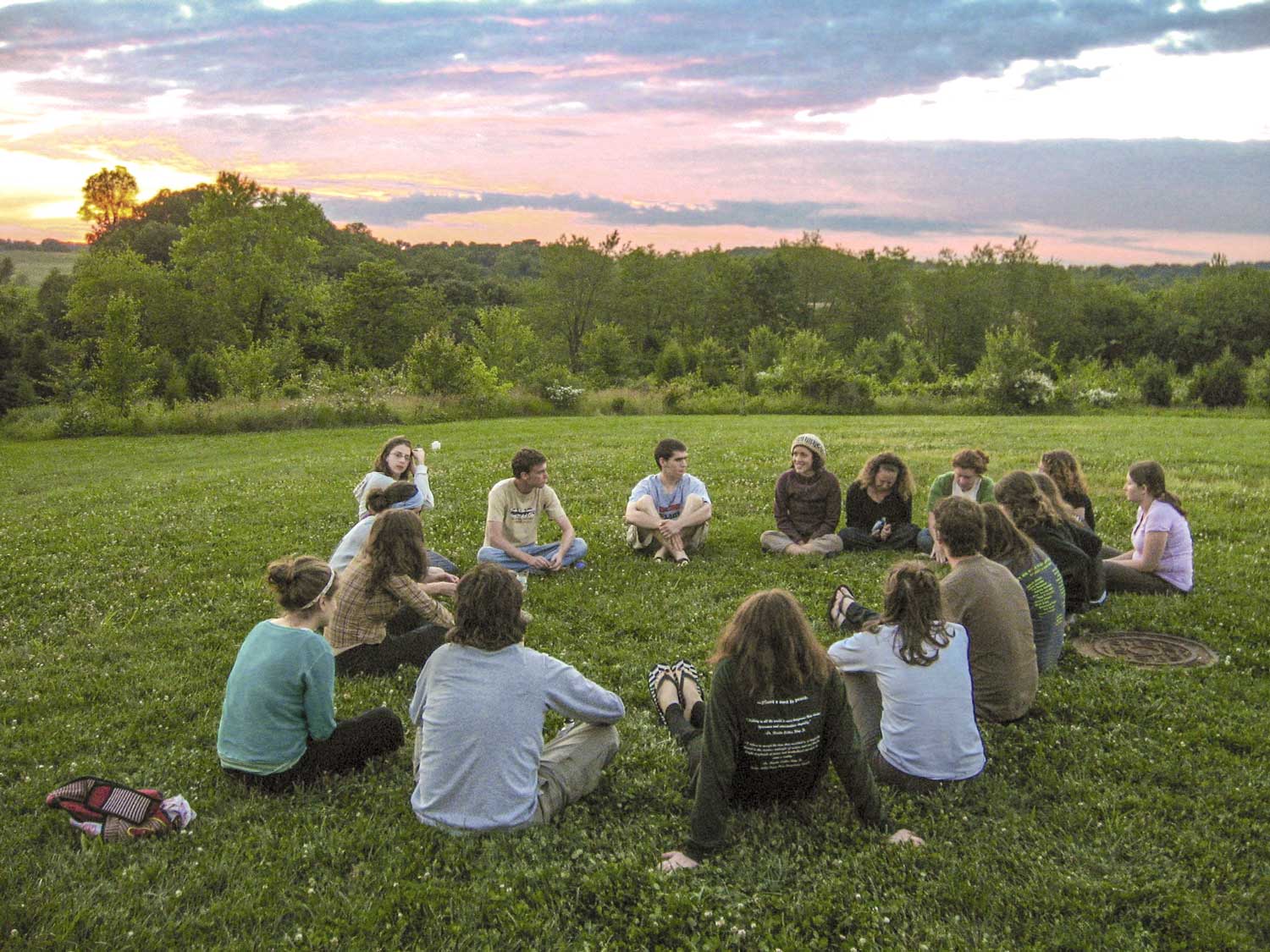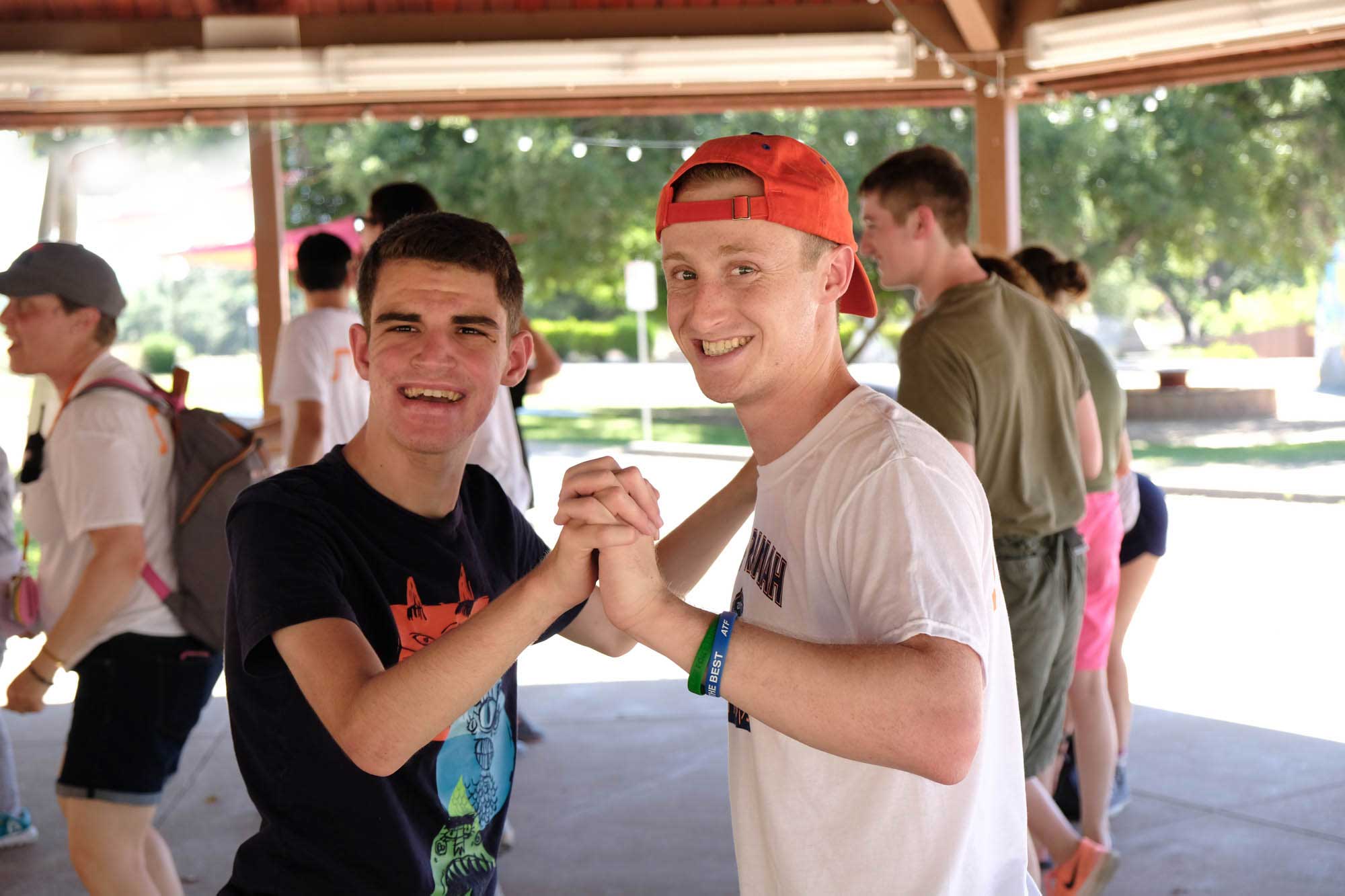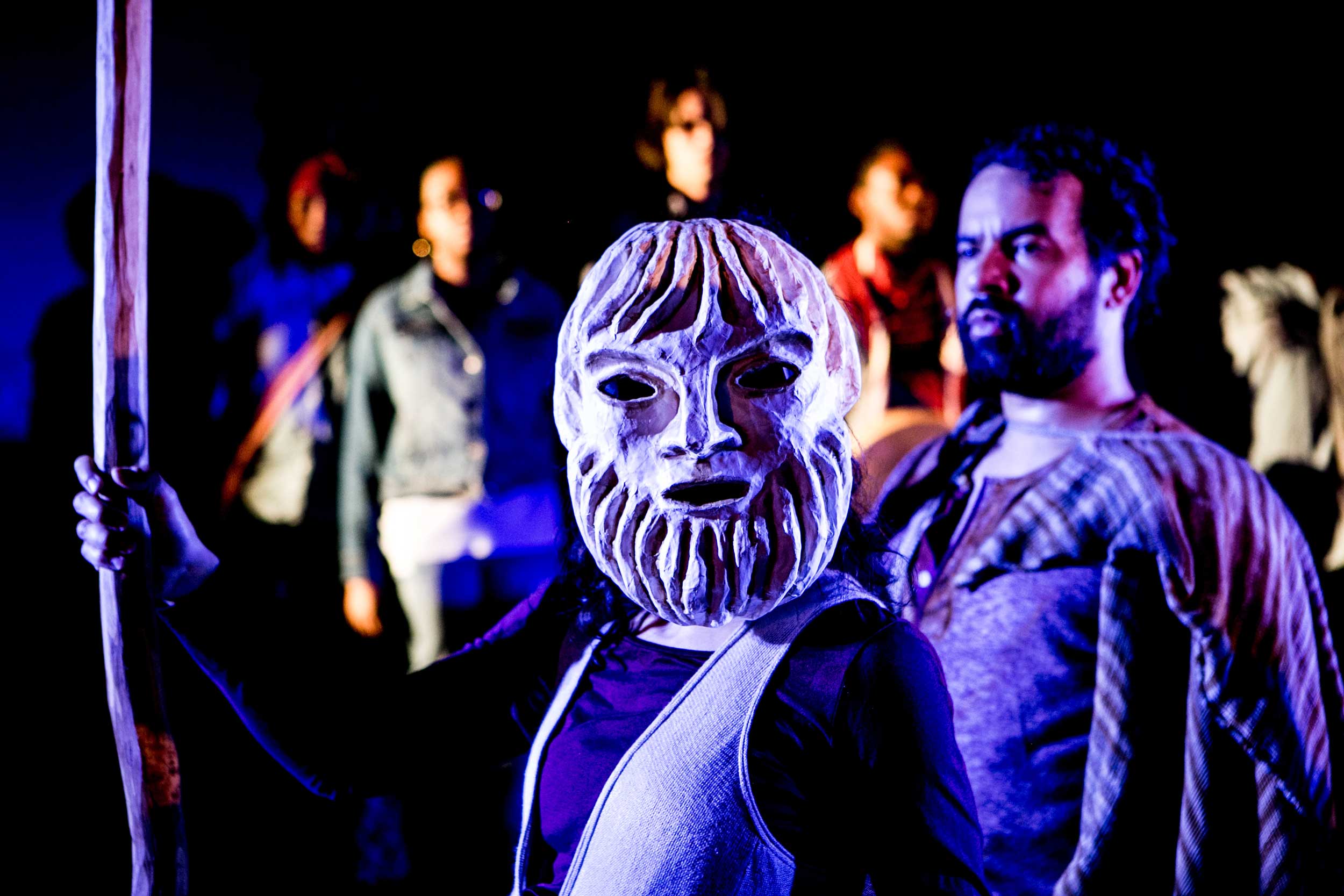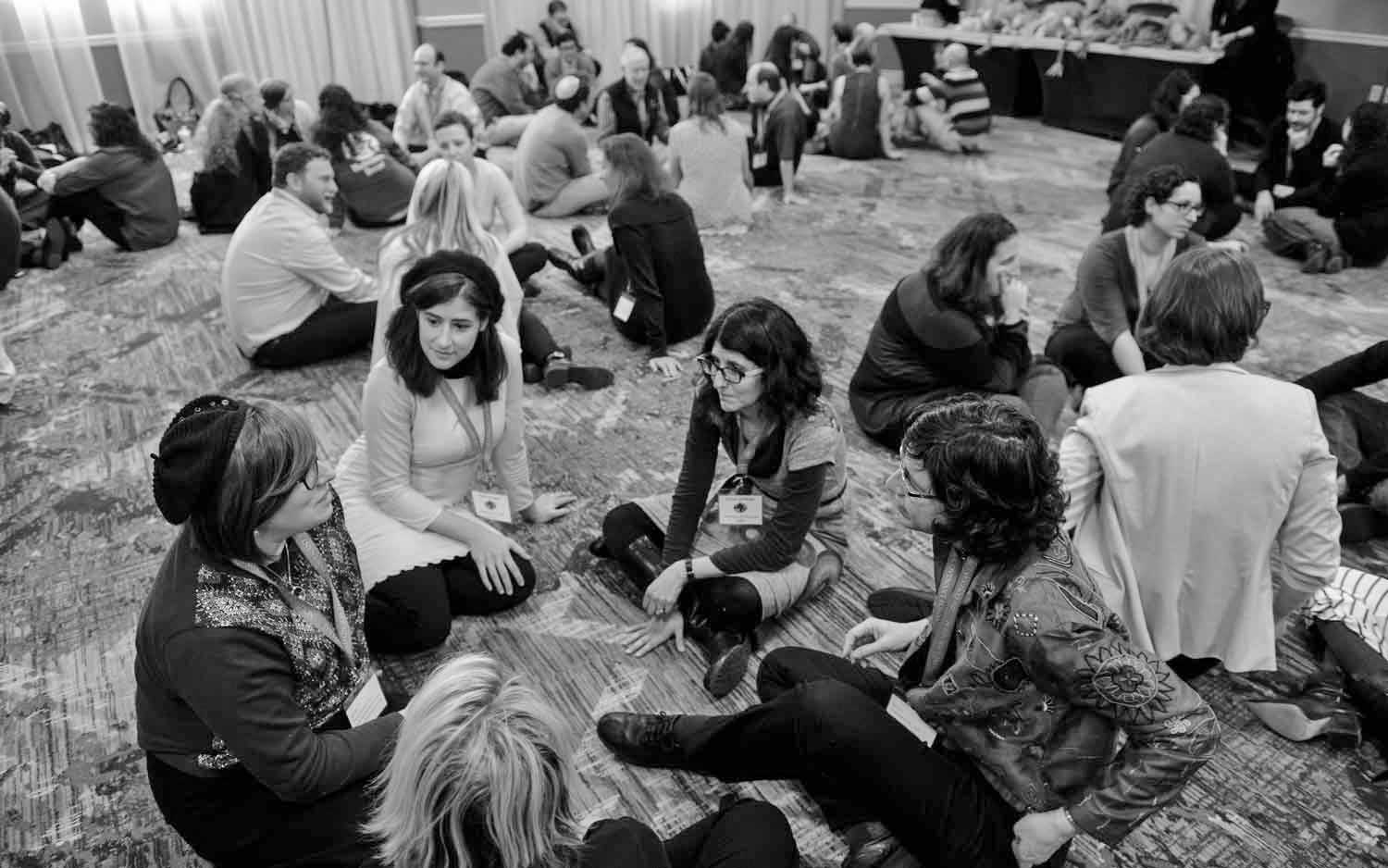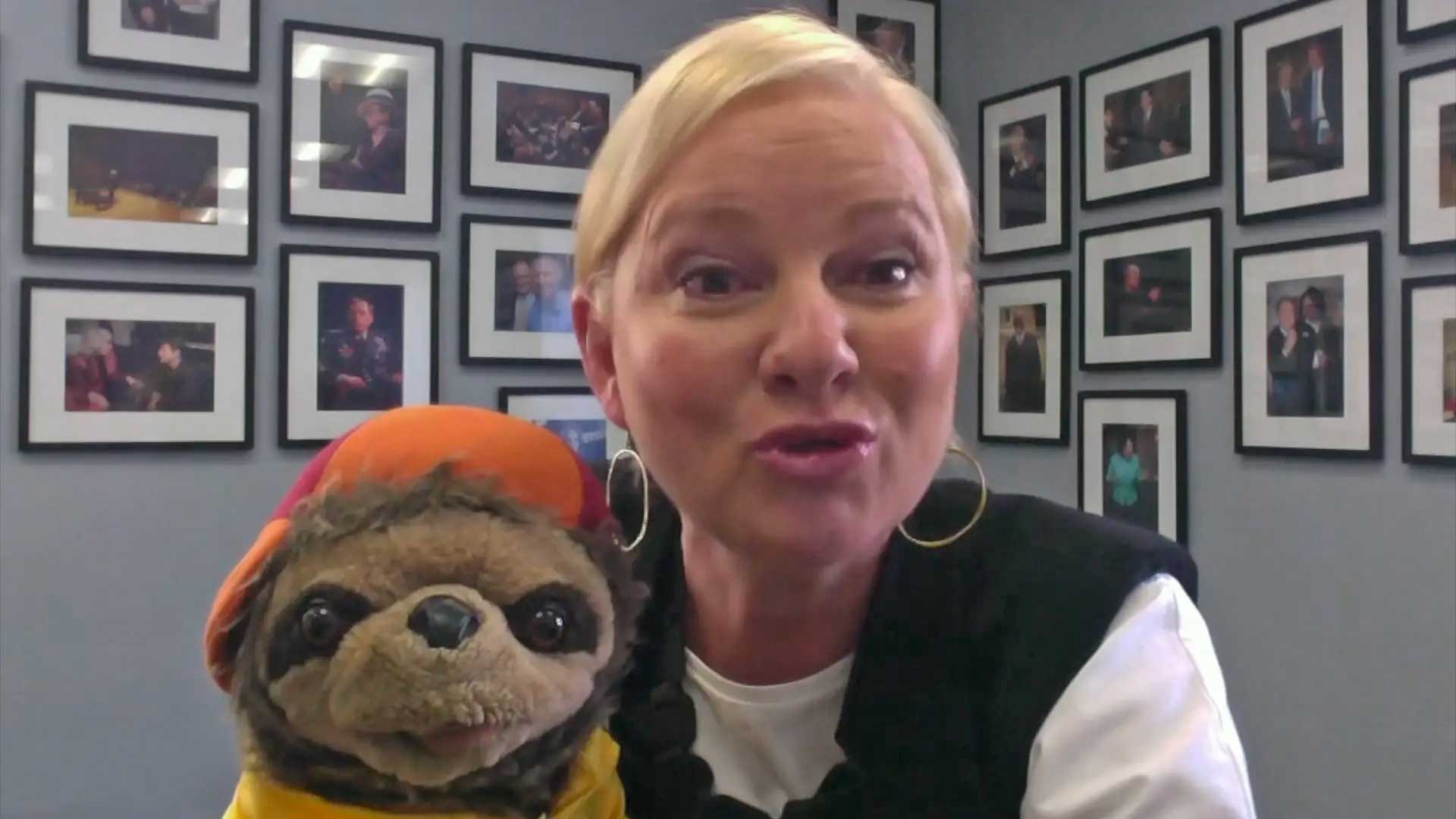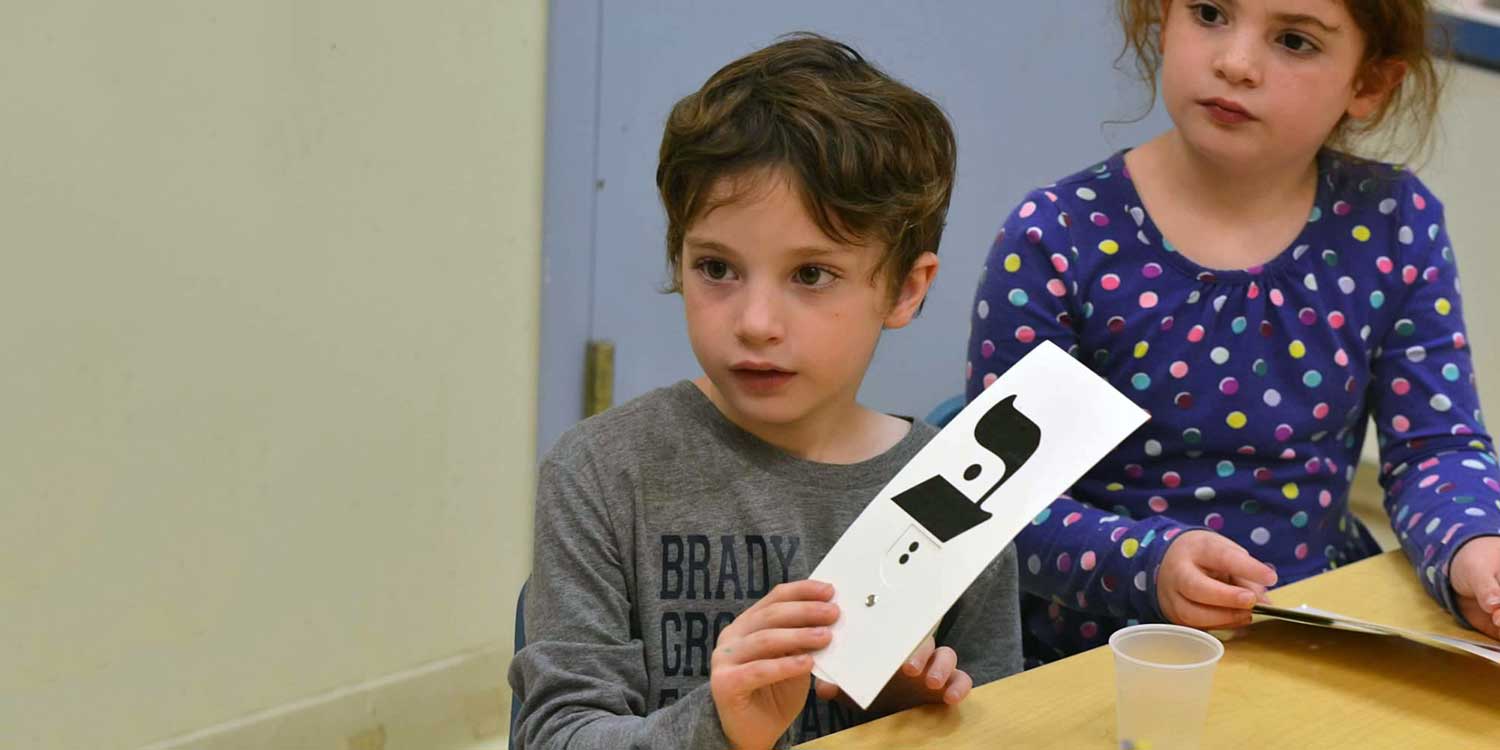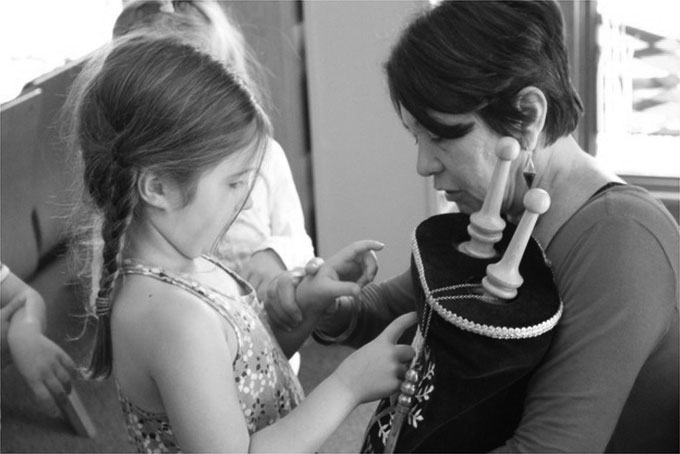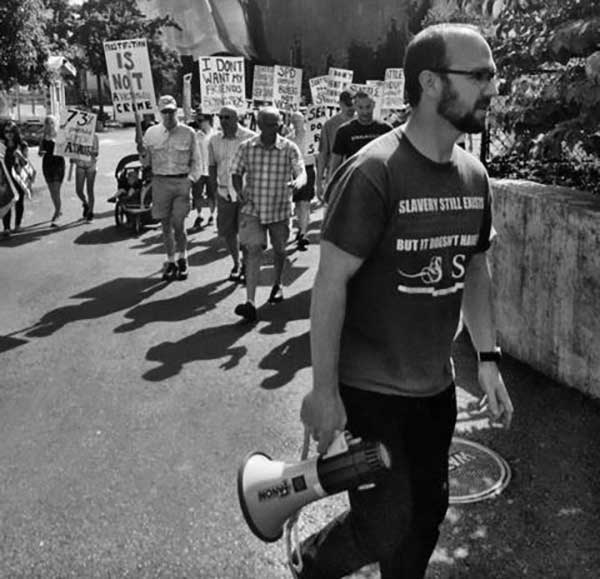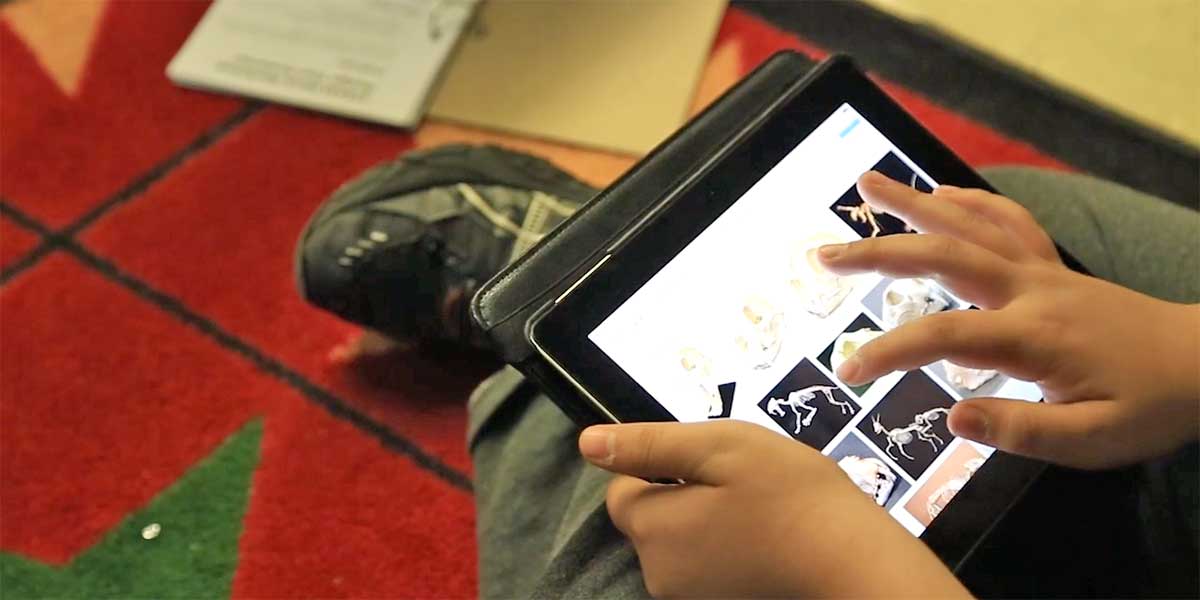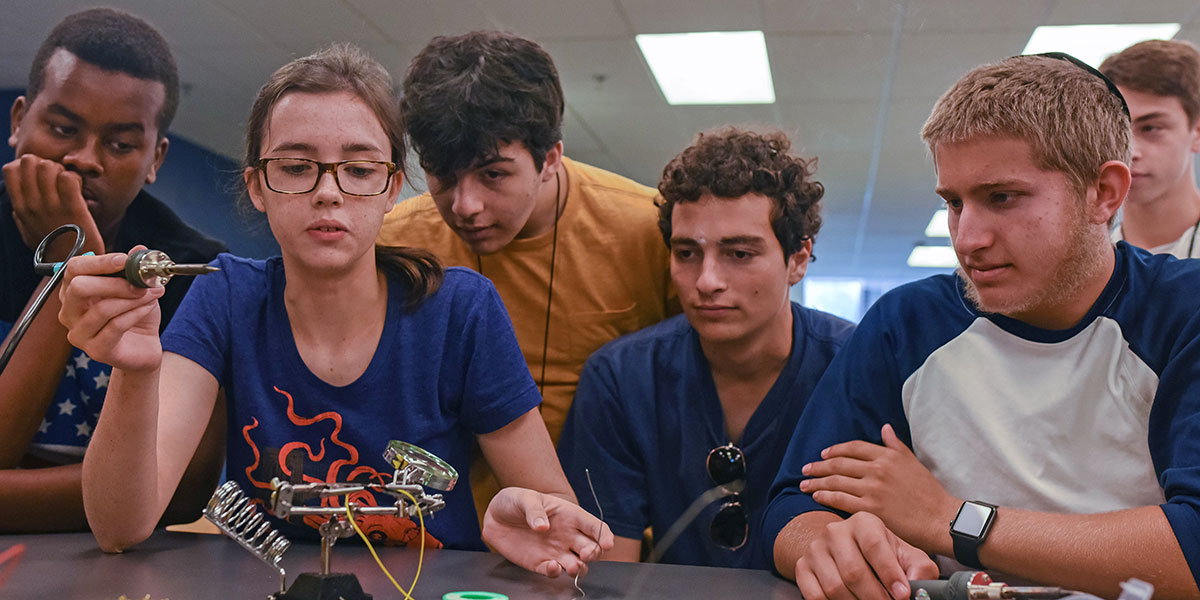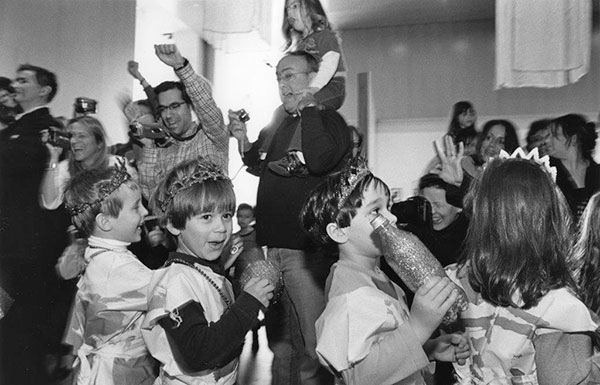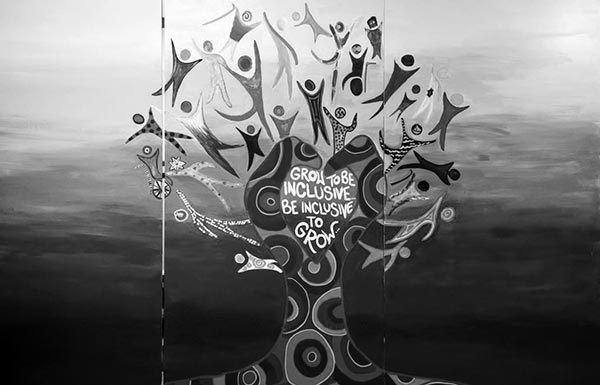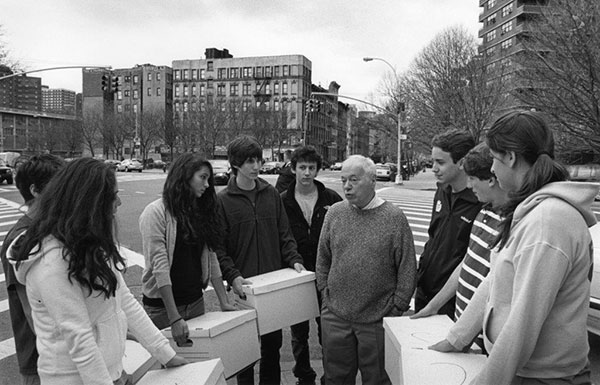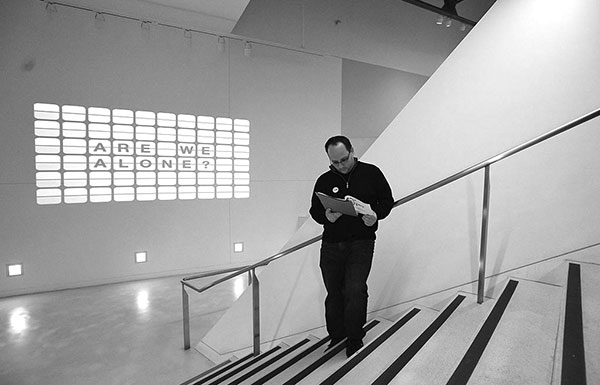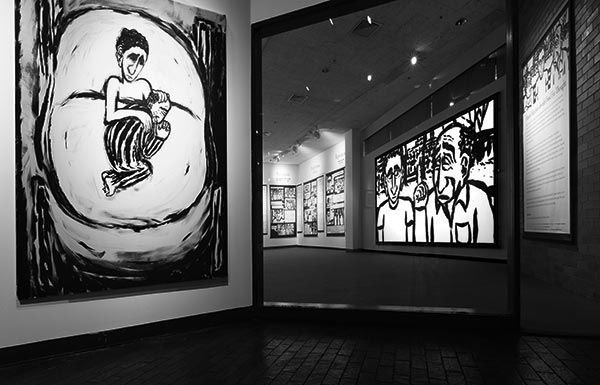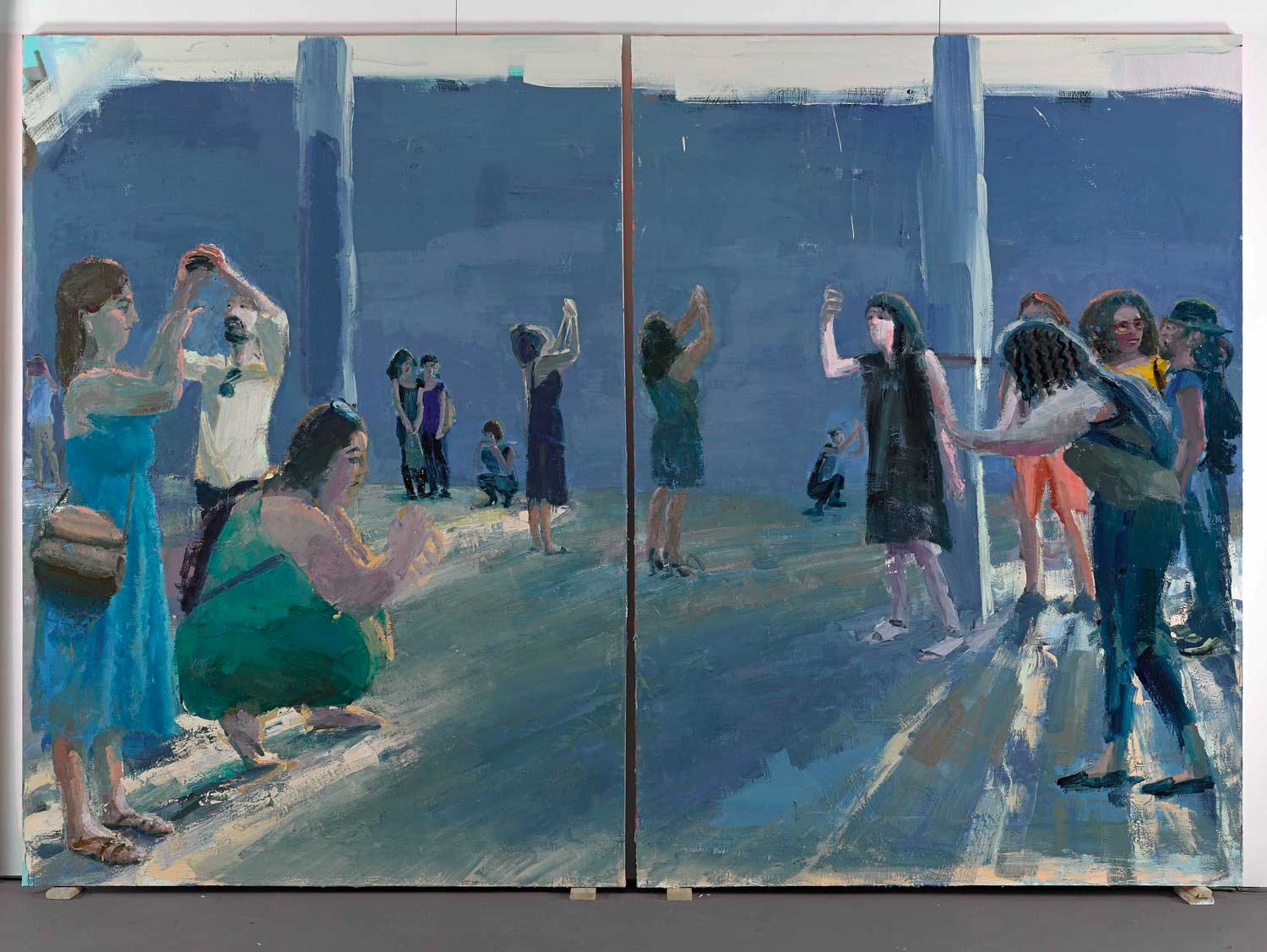
ARTICLE A Showcase: 12 Jewish Artist-Educators You Should Know
Artists have the capacity to be change agents in the work of Jewish education and organizational life; they help us shift perspective and engage in our work more creatively, more passionately, and with intention. Their presence is wasted if it is simply a side-show, or a gimmick to make boring content light and fun. Artists help us access our deepest potential.
Dr. Elliot Eisner, one of the most prolific advocates of arts education of our day, wrote in Arts and the Creation of Mind, “Education … is the process of learning to create ourselves, and it is what the arts, both as a process and as the fruits of that process, promote. Work in the arts is not only a way of creating performances and products; it is a way of creating our lives by expanding our consciousness, shaping our dispositions, satisfying our quest for meaning, establishing contact with others, and sharing a culture.”
If we enlist teaching artists in the project of creating our lives, as Eisner suggests, we will no doubt unlock richness, mystery and meaning that we would not otherwise access.
-Dr. Miriam Heller Stern, National Director, School of Education, Hebrew Union College-Jewish Institute of Religion
Zoe Penina Baker
Zoe Penina Baker is a Jewish-American artist exploring themes of female identity through interactive installation and storytelling. Using interviews and social spaces like Shabbat dinners to collect stories from her peers, Zoe seeks to paint portraits of millennial Jewish life that explore their diverse, intersectional identities. Interested in exploring ideas about consumerism and personal identity through objects, Zoe collects materials from her own life, peers, and surroundings to develop archives of personal stories and ephemera on Jewish themes.
Her current project, “Miss Mitzvah,” will be on view at the Museum of Jewish Montreal in November 2017. Drawing from her own experience as a young woman growing up in Queens and the Five Towns on Long Island, Zoe’s own memories of over-the-top affairs and keeping up with the Joneses at Jewish day-school inspired a deep dive into her own past, often fraught with the search for meaning and value in Jewish life within a materialistic mall-driven secular culture.
From first aliyot to first kisses, the objects in the collection reflect the stories of interviewees from across North America, women on the precipice of adulthood post-college who have been invited to reflect on their first responsibilities and interests as budding adults on the eve of their Bat Mitzvahs. Their stories paint portraits of friendship, family values, insecurity, peer pressure, and immense beauty and value in the face of a truly confusing time of life.
Zoe also teaches high school students in Brandeis University’s BIMA program.

Zoe Penina Baker, from Dining Dreams, a storytelling project exploring intergeneration Jewish female identity
Sam Ball, of Citizen Film
Sam Ball is a documentary filmmaker and cofounder of Citizen Film, a not-for-profit production company dedicated to crafting documentaries with care and dignity. Citizen Film collaborates with cultural institutions, community organizations and independent producers to create films and online media that foster active engagement in cultural and civic life. Through its Digital Storytelling in Jewish Studies initiative, Citizen Film inspires exploration of Jewish subjects in the public sphere. For example, documentary artist Sam Ball and professor Francesco Spagnolo, curator of UC Berkeley’s Magnes Collection of Jewish Art and Life, are bringing young refugees and students together for an ongoing series of workshops, public exhibitions and events. October 23-25, they’ll communicate with hundreds of thousands of people in a large scale media installation on Times Square featuring a collection of objects and multimedia art that offers a striking glimpse of what it means to leave home, when home, in the words of refugee poet Warsan Shire, “is the mouth of a shark.”
Check out this trailer for one of the videos produced for the initiative: https://vimeo.com/220677251/3e6077063a

Sam Ball (From Shared Studios and Times Square Arts present Citizen Film's What We Carry With Us @ TimesSquare_Portal Oct. 23-25)
Tirtzah Bassel
Tirtzah Bassel is an Israeli artist based in New York. Her drawings, paintings and site-responsive installations explore the relationships between power and space, and the permeable borders between public and private domains. She also is the founder of PopUp for Change, a program of the 14th Street Y that brings teens together to transform urban spaces into vibrant PopUp food trucks, supper clubs and fashion boutiques that tackle issues of social justice. Tirtzah is assistant director of the Brandeis Institute of Music and Art at Brandeis University and a resident artist in the Chashama Workspace Program in Sunset Park, Brooklyn.

Pilgrimage (diptych), 84"x120", acrylic and oil on canvas, 2017
Ezra Benus
Ezra Benus is a visual artist based in New York. He studied at the Bezalel Academy of Art in Jerusalem, the University of Amsterdam, and completed his undergraduate degree in Studio Art and Jewish Studies at CUNY Hunter College. He recently completed the Jewish Studies Fellowship at Paideia Institute in Stockholm, Sweden. During the summer Ezra teaches art to high school students in Brandeis University's BIMA arts program. From paintings, sculptures, to performance art, Ezra's work engages with social and cultural assumptions revolving around the topics of disease/disability, and religion.

Ezra Benus, "Disease, Health, Remission
Isaac Brynjegard-Bialik
Isaac Brynjegard-Bialik is an artist living in Southern California. Isaac “cuts up paper and reassembles it into work made of clean lines and patterns, sinuous shapes and sharp edges, large fields of color and small intimate spaces.” Isaac also teaches a two-week mosaic and papercutting midrash immersion at URJ Camp Newman every summer.
In the summer of 2017, Isaac used tools and tile purchased with leftover dollars from a micro grant he received from The Covenant Foundation to make a four-foot wide and six-foot tall mosaic with his campers, that reflected the theme of “community.”
Together with his wife, Rabbi Shawna Brynjegard-Bialik, Isaac also leads workshops that integrate contemporary art, pop culture, and scholarship, which may be customized for your community. Learn more here.
And check out KIDS' work on Isaac’s blog: http://isaacb2.blogspot.com/
.jpg)
Courtesy of Isaac Brynjegard-Bialik, from URJ Camp Newman Summer 2017
Ariel Burger
Ariel Burger is the creator of Illuminated Jewish Stories, which began as an illustration project, and has expanded to include adult learning, professional development workshops, and storytelling seminars. This past year, the themes of otherness, the search for home, and hospitality emerged as central and relevant. Together, groups of adult learners share stories of their ancestors' migration to this country, as well as their own experiences of feeling marginalized or welcomed. We all have messy and multivalent identities, and by putting these stories in dialogue with Jewish Aggadic (narrative) texts, we can shed new light on our own stories and reveal hidden diversities and hidden commonalities between us. The combination of storytelling, text study, and art making leads to powerful insight and new, transformative perspectives.
.jpg)
Ariel Burger (Sara Chana at the Tip of the Church Tower, pen and ink over gouache)
Hanan Harchol
Hanan Harchol is a New York-city based artist, animator, filmmaker, classical guitarist and educator. Hanan is currently producing a feature-length narrative film, based on his experiences as a public high school teacher in New York City. Written and directed by Harchol, the film takes an honest look at the challenges that new inner-city public school teachers face, why so many leave the profession, and what leads some to stay. The film features Harchol's former students as actors, and is currently scheduled for a December, 2018 release. Check out this link for more: www.hananharchol.com/film.
Hanan also recently taught a course in filmmaker to Education students in the HUC-JIR Masters in Education program. Read about it, here.
.jpg)
Hanan Harchol (from About a Teacher, feature film)
Aaron Henne
Aaron Henne is the Artistic Director of theatre dybbuk, which creates “provocative theatrical presentations and innovative educational opportunities based on Jewish folklore, rituals and history.” Henne was also the Dianne Luboff Scholar at the Cutter Colloqium at HUC-JIR this past August. Working in close collaboration with Dr. Miriam Heller Stern, National Director of the School of Education, Aaron facilitated a series of creative, collaborative exercises for upcoming leaders in the field.
Currently, theatre dybbuk is in development on lost tribes, a new touring multidisciplinary performance piece which utilizes stories connected to the lost tribes of Israel to investigate questions of artistic expression, belonging, equal treatment, integration, appropriation, and assimilation in our world today. It will premiere in February 2018, with an accompanying educational program exploring questions related to identity, and continue touring throughout the year.
Read more, here:http://www.theatredybbuk.org/lost-tribes
.jpg)
Aaron Henne (From theatre dybbuk's exagoge. Photo by Taso Papadakis)
Alicia Jo Rabins
Alicia Jo Rabins is a writer, musician, performer and Torah teacher in Portland, OR, and the creator of Girls in Trouble.
Most recently, Alicia worked on a project with Lisa Schonberg, a rock drummer in Portland who is Jewish but never had a bat mitzvah. Alicia taught Lisa to chant Torah (they started with the alphabet!) and about Judaism, and prepared her for a bat mitzvah (in Alicia’s backyard!) In return, Lisa taught Alicia ato play the drums and compose for percussion. Together, in chavruta, they researched the ancient Near Eastern roots of women's drumming as well as women's spiritual leadership. Having both recently turned 40, they see the project as one that’s also about lifelong learning, and what it means to learn new skills beyond the early years.
Here’s a trailer for the forthcoming film about their project, a Drummer’s Bat Mitzvah:
http://www.lisaschonberg.com/drummers-bat-mitzvah/
More projects Alicia is working on right now:
The Matriarchs: A Love Story (working title) - a spiritual memoir written around and through the stories of women in Torah. About growing up as an artist and a secular Jew; going deep into Jewish texts for two years in Jerusalem, where I fell in love with the stories of women in Torah; and finally, coming home and finding a path to integrate all that wisdom with daily life in America.
A Kaddish for Bernie Madoff: The Film - a featurette-length film (30-40 minutes) adapted from my one-woman chamber-rock opera about the intersection of finance and spirituality, A Kaddish for Bernie Madoff. Told from the perspective of an artist working in an empty Wall Street office during the Great Recession, this film explores the boundaries of community, and the very human desire to believe that one messianic figure can finally escape the laws of nature - and finance.
.jpg)
Alicia Jo Rabins'- A Drummer's Bat Mitzvah (Photo Credit, Peter Rabins)
Jon Adam Ross
Jon Adam Ross is an actor, playwright and Jewish educator based in New York. Ross is also the creator of The In[heir]itance Project, which has created five plays made with five communities over three years. Each play is inspired by the narrative of a matriarch or patriarch from the book of Genesis and devised from interactions with communities, opening up the creative process so the audience can participate and ultimately have a deeper connection to the performance and the biblical narratives that inspire the project. Currently, Ross is exploring the biblical narratives of Sarah and Hagar with interfaith community members in Kansas City.
“What we've learned since holding open rehearsals in Kansas City at a church, a mosque, and a synagogue, is that there is no universal true version of this biblical narrative. There is only his truth and her truth and their truth and our truth. We're making theater between a rock and a hard place. And though it's hard work, it feels like sacred work. Putting communities in conversation with each other and their own shared narratives. If not now, when?”
.jpg)
Jon Adam Ross (from The Sarah Play Open Rehersals, Kansas City, September 2017)
Ilana Trachtman
Ilana Trachtman, a filmmaker living in Philadelphia, is currently at work on Ain't No Back to a Merry-Go-Round, a documentary feature film telling an unknown story of the civil rights movement. In 1960, three miles from the US Capitol, Maryland’s Glen Echo Amusement Park was tenaciously holding onto Jim Crow. Inspired by the Greensboro sit-ins, a small group of Howard University students started their own Non-Violent Action Group (NAG) and targeted the Park’s whites-only carousel. Across the street lay the community of Bannockburn, settled in the 40's by leftist Jews prohibited from buying homes inside the District. In an unprecedented alliance, Bannockburn residents joined the Howard students in sit-ins and pickets at the amusement park. The army of white foot soldiers were largely "housewives" who came out with their strollers, sandwiches, and homemade signs. After ten sweltering weeks and 24 arrests, this interracial partnership confronted the park owners, Maryland’s Jim Crow laws, the American Nazi Party, and the Supreme Court. The picket line trained several of the 1961 Freedom Riders, including Stokeley Carmichael. Eight surviving protesters tell their stories, exploring how following this first impulse to activism transformed their lives.
See a 6 minute sample reel, here:
Case-sensitive password: GlenEcho30
.jpg)
Ilana Trachtman (From Ain't No Back to a Merry Go Round)
The Jewish Film Institute
In partnership with ITVS (Independent Television Service), JFI continues its young adult Jewish engagement using film and media to promote dialogue across geographies as a shared community building experience. JFI on Demand for the Next Wave and Talk Amongst Yourselves are hybrid online/live platforms that take the film viewing experience outside of the theatres for smaller, peer-based opportunities for education, dialogue and opportunities for community building.
With support from the Jewish Community Federation and Endowment Fund and the Covenant Foundation, JFI combines its own on demand titles and live screenings with new platforms for a multi-purposed experience of film, community and dialogue. Using OVEE (Online Video Engagement Experience), JFI can enable an an online screening room experience that augments film viewing by encouraging engagement through the use of a chat bar, polls, Q&As, and emoticons in real time while watching video content.
Learn more at https://jfi.org/year-round/talk-amongst-yourselves.
.jpg)
JFI (From San Francisco Jewish Film Festival, Summer 2017)
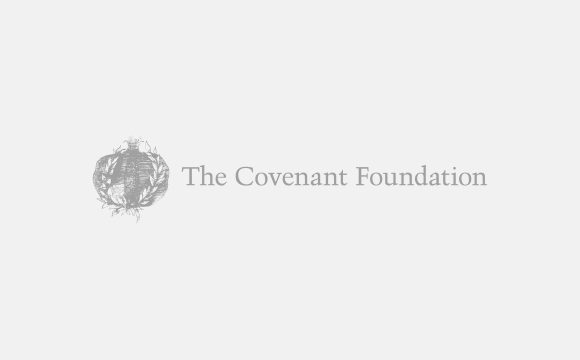
An Abundance of Art and Learning: The Shefa School Welcomes First Students this Fall
996
